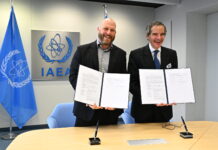Understanding the Administrative Burden on Healthcare Professionals
In today’s healthcare landscape, a significant portion of the workload for doctors and nurses involves administrative tasks. These tasks encompass maintaining detailed patient records, completing insurance forms and referrals, documenting procedures, organizing documentation for claims, and inputting claim information into systems. A recent study conducted by Google Cloud in collaboration with The Harris Poll has highlighted the magnitude of this burden and proposes a technological solution through generative AI (gen AI) to alleviate these challenges. The full study can be accessed here.
The Impact of Administrative Tasks on Clinicians
Healthcare professionals in the U.S., including doctors and nurses, report spending nearly 28 hours each week on administrative duties. This significantly reduces the time available for patient care, which is their primary responsibility. The result of such an overwhelming workload is a pronounced feeling of burnout, with 82% of clinicians expressing this sentiment. It’s not just the doctors who are affected; insurance staff are also burdened, spending an average of 36 hours a week on similar tasks, such as maintaining member records and compiling claims documentation.
Burnout, Errors, and Reduced Patient Interaction
The overwhelming amount of paperwork and administrative tasks contributes to some of the most pressing issues in healthcare today:
- Burnout and Staffing Shortages: Administrative overload is a major factor leading to burnout among healthcare providers. A significant 82% of clinicians, 81% of medical staff, and 77% of claims staff agree that these duties contribute to feelings of burnout. Furthermore, 85% of healthcare provider executives and 78% of insurance company executives acknowledge that excessive administrative work has resulted in staffing shortages.
- Reduced Time with Patients: The focus on administrative tasks detracts significantly from the time healthcare providers can spend with their patients. Eight out of ten healthcare providers believe that these duties negatively impact the quality of care they can provide. This viewpoint is echoed by 93% of clinicians, 88% of medical staff, and 94% of claims staff, who feel they could offer better patient care if their administrative workload was reduced.
- Increased Risk of Human Error: The complexity and volume of administrative tasks increase the likelihood of human error. Two-thirds of healthcare providers and 89% of insurance payors express considerable concern about this issue, with 22% of providers and 49% of payors being "extremely" concerned.
Generative AI as a Solution
Generative AI offers a promising solution to these administrative challenges. The study reveals that healthcare professionals are optimistic about the potential of AI to ease their burdens. An impressive 91% of healthcare providers and 97% of payors have a positive outlook on AI’s role in reducing administrative tasks. The general public shares this optimism, with 72% supporting the use of AI to give healthcare providers more time for patient interaction. Here are some ways gen AI can assist:
- Streamlining Document Searches: Gen AI can simplify the process of searching patient documents and medical records, making it faster and more efficient.
- Automating Clinical Documentation: AI can assist in creating clinical documents such as discharge summaries, progress notes, and referral letters. This allows clinicians to spend more time reviewing and finalizing documents rather than drafting them from scratch.
- Facilitating Faster Authorizations: By pre-populating forms, flagging potential issues, and suggesting relevant clinical guidelines, AI can expedite the process of obtaining prior authorizations.
- Accelerating Medical Imaging: AI can speed up the turnaround times in medical imaging by drafting initial reports. This allows radiologists to prioritize more complex cases and collaborate more effectively, focusing their expertise where it is most needed.
Enhancing Patient Care Through Technology
While AI cannot replace the human compassion and expertise that are essential in healthcare, it can significantly support healthcare professionals by reducing their administrative workload. By doing so, AI paves the way for a more efficient, accurate, and patient-centered healthcare system. This transition allows healthcare providers to concentrate on what truly matters—their patients—ensuring that the needs of individuals remain the primary focus in healthcare delivery.
Broader Implications and Considerations
The integration of AI into healthcare administration is not just about efficiency; it also holds the potential to revolutionize the entire healthcare system. By reducing administrative burdens, healthcare professionals can dedicate more time to patient care, potentially improving patient outcomes and satisfaction. This shift could lead to a more sustainable healthcare workforce, with less burnout and higher job satisfaction among clinicians and administrative staff alike.
Moreover, the adoption of AI in healthcare administration could also lead to cost savings for healthcare facilities and insurance companies. By automating repetitive tasks, AI can reduce the need for extensive human resources dedicated to paperwork, allowing organizations to allocate their resources more effectively.
Conclusion
The study by Google Cloud and The Harris Poll underscores the pressing need to address the administrative burdens faced by healthcare professionals. Generative AI emerges as a viable solution, offering a means to streamline processes, reduce errors, and allow healthcare providers to focus more on patient care. As the healthcare industry continues to evolve, embracing AI technology could be a crucial step toward a more efficient and compassionate healthcare system. Through these advancements, healthcare can become more human-centered, ensuring that patient care remains the top priority.
For more Information, Refer to this article.


































